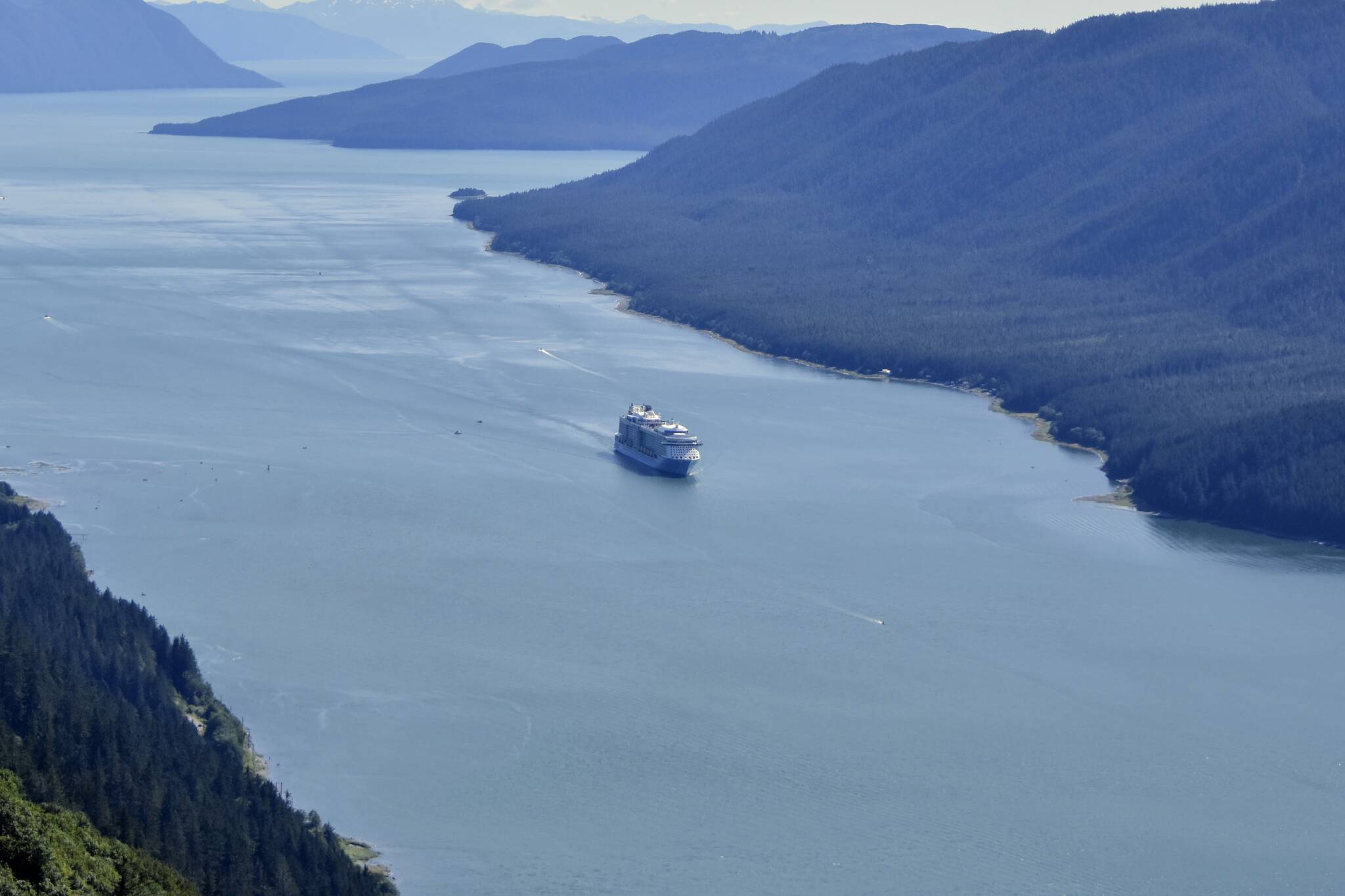Sen. Lisa Murkowski, R-Alaska, introduced legislation Thursday that would permanently exempt cruise ships from the Passenger Vessel Services Act, a U.S. law that earlier this year threatened the state’s cruise ship season.
The Centers for Disease Control and Prevention implemented a no-sail order for cruise ships in 2020 at the beginning of the COVID-19 pandemic. Though the agency altered its guidelines to allow sailing, Canada announced it would keep its ports closed to the ships, creating problems for cruise ships wanting to sail to Alaska.
The PVSA says vessels carrying a certain amount of people must stop at a foreign port while transiting between two U.S. ports if that voyage enters international waters. Large cruise ships are typically flagged out of Caribbean nations and have typically stopped in Vancouver, British Columbia, Canada, as a way of complying during voyages from Seattle to Alaska.
[State officials: Health care reinforcements are coming]
Earlier this year, Alaska’s Congressional delegation was able to shepherd through legislation creating a temporary exemption Murkowski’s legislation would make permanent.
Known as the Cruising for Alaska’s Workforce Act, the law would remain in place until an American-built vessel that carries 1,000 passengers or more is built, according to a statement from Murkowski’s office.
“While the PVSA still serves its purpose in the Lower 48, it unintentionally put many Alaskan businesses at the mercy of the Canadian government when Canada closed its borders, including ports,” Murkowski said in the statement. “The inability for cruises to travel to Alaska nearly wiped out our economies in Southeast — communities like Skagway for example saw an 80% drop in business revenues.”
• Contact reporter Peter Segall at psegall@juneauempire.com. Follow him on Twitter at @SegallJnuEmpire.

